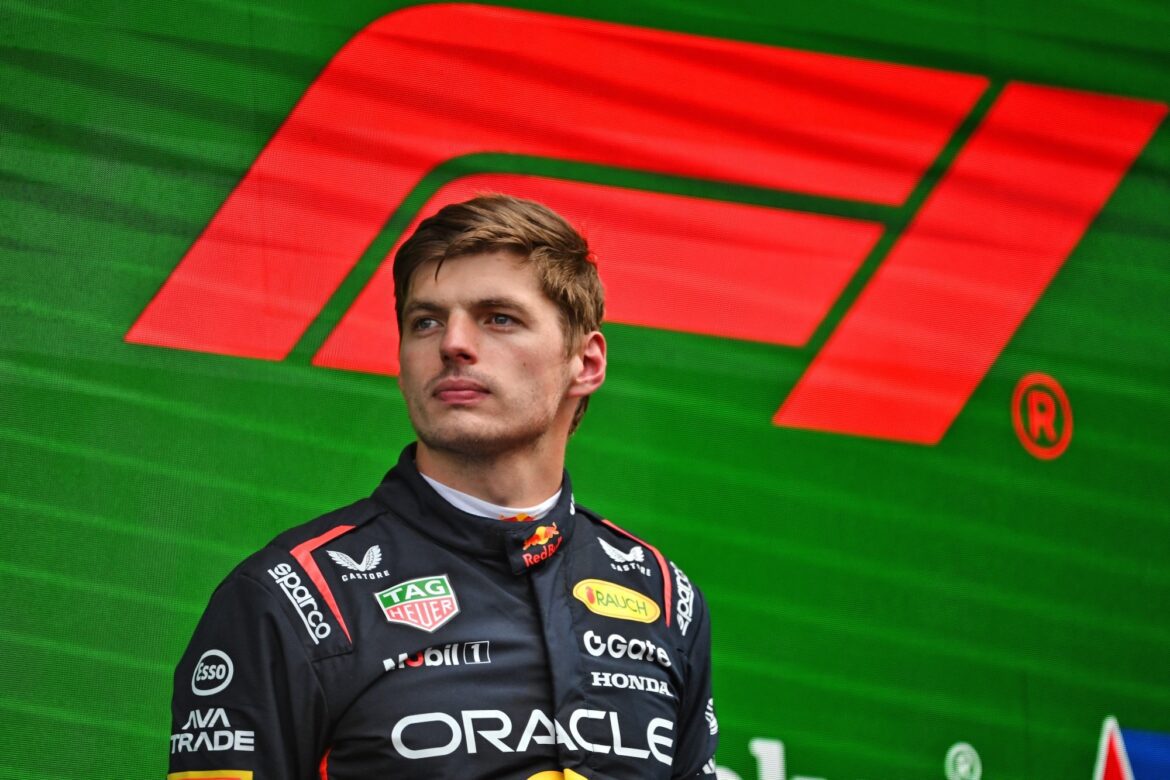Max Verstappen’s Future in Formula 1: Insights from Guenther Steiner
In the fast-paced world of Formula 1, decisions often carry significant weight, especially for drivers like Max Verstappen, a four-time world champion. Guenther Steiner, the team principal of Haas, recently shed light on Verstappen’s potential future with Red Bull Racing. According to Steiner, Verstappen is likely to hold off on any team changes until the conclusion of the 2026 season, a pivotal year marked by new regulations that will reshape the competitive landscape of F1.
The Importance of Timing in Formula 1
In motorsports, timing is crucial. Drivers must carefully evaluate their options, particularly when it comes to team contracts and performance expectations. Steiner emphasized that Verstappen’s decision to stay or leave Red Bull will hinge on the performance of the newly regulated cars in 2026. This new set of regulations aims to level the playing field and introduce significant changes to the power units that teams will use.
Steiner remarked, “Max will wait until the first season with the new regulations in 2026 to see which cars perform well and which do not. By the end of 2026, he will make a decision about where he wants to be in 2027.” This insight underscores the strategic approach that top drivers must take when considering their futures in the sport.
Speculations Surrounding Verstappen’s Move to Mercedes
Earlier this year, Verstappen’s name surfaced in discussions about a possible transfer to Mercedes. Such speculation is common in the realm of F1, where driver movements can significantly impact team dynamics and competitive standings. However, prior to the Hungarian Grand Prix, Verstappen quelled these rumors by confirming his commitment to Red Bull through 2025. This announcement effectively silenced the chatter regarding a switch to Toto Wolff’s Mercedes team.
The discussions surrounding Verstappen’s future reflect not just personal ambition but also the broader context of team performance and stability. While Mercedes has established itself as a dominant force in F1, the uncertainty surrounding the new regulations means that no team can guarantee success in the upcoming seasons.
The Competitive Landscape Post-Regulation Changes
One of the key factors influencing Verstappen’s decision-making process is the anticipated competitiveness of the cars under the new regulations set to debut in 2026. The introduction of new power unit specifications will undoubtedly reshape the performance capabilities of each team. Red Bull is set to become a supplier of its own engines, a shift that presents both opportunities and challenges.
Steiner expressed his views on the matter, stating, “Simply moving to Mercedes without the assurance that they will have a competitive car in 2026 does not make sense.” This perspective highlights the risks associated with changing teams, especially when the future performance of the new power units remains uncertain.
Verstappen’s potential move hinges on the performance of Red Bull’s new engines compared to those of Mercedes and other competitors. The unpredictability of the new regulations means that even historically successful teams may find themselves at a disadvantage if their new designs do not meet expectations.
Assessing Red Bull’s Performance in 2026
For Verstappen, the upcoming season will be critical in evaluating Red Bull’s performance under the new technical regulations. Steiner believes that it is prudent for Verstappen to closely monitor how Red Bull adapts to the changes before making any long-term commitments. “Next year, Max will stay and see what Red Bull is doing, and then he will decide,” Steiner commented. This approach allows Verstappen to gauge the effectiveness of Red Bull’s new strategy and engine performance.
The ability to assess performance in real-time will be vital for Verstappen, especially considering the potential for significant shifts in team dynamics. The competitive environment in Formula 1 is fluid, and drivers must be prepared to adapt to new challenges while keeping an eye on their career trajectories.
The Challenges of Long-Term Contracts in Formula 1
One of the complexities of driver contracts in Formula 1 is the long-term commitment required. Steiner pointed out the difficulties that come with signing a multi-year deal without a clear understanding of a team’s future competitiveness. “He would have to sign a multi-year contract, and if the car is not competitive, it’s tough to catch up,” he explained. This sentiment resonates with many in the sport, emphasizing the importance of making informed decisions based on current and projected performance.
The pressure to perform and the stakes involved in team contracts necessitate a careful evaluation of options. For a driver of Verstappen’s caliber, the implications of a contract extend beyond mere numbers; they encompass career longevity, championship aspirations, and personal fulfillment in the sport.
Looking Ahead: Verstappen’s Strategic Choices
As Verstappen navigates his career in the coming years, the strategic choices he makes will be paramount. The 2026 season will serve as a critical juncture, allowing him to assess not only Red Bull’s performance but also the overall landscape of Formula 1. The interplay between team dynamics, car performance, and regulatory changes will shape his decision-making process.
In the world of Formula 1, where every season can bring unforeseen challenges and opportunities, Verstappen’s ability to adapt and evaluate the evolving environment will be crucial. His commitment to Red Bull through 2025 gives him the chance to witness firsthand how the team embraces the new regulations and how that impacts their overall competitiveness.
Conclusion
As the Formula 1 landscape prepares for the changes that will come with the 2026 regulations, drivers like Max Verstappen are faced with pivotal choices that could define their careers. Guenther Steiner’s insights shed light on the strategic considerations that Verstappen must weigh as he contemplates his future. The combination of new power unit regulations, team performance, and competitive dynamics will ultimately guide Verstappen’s decision-making as he looks ahead to the next chapter in his illustrious career.
In this ever-evolving sport, the future remains uncertain, but one thing is clear: Verstappen’s journey is far from over, and the 2026 season will be a significant milestone in his pursuit of further glory in Formula 1.
